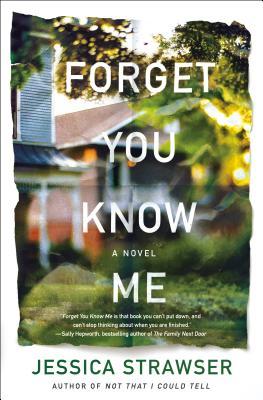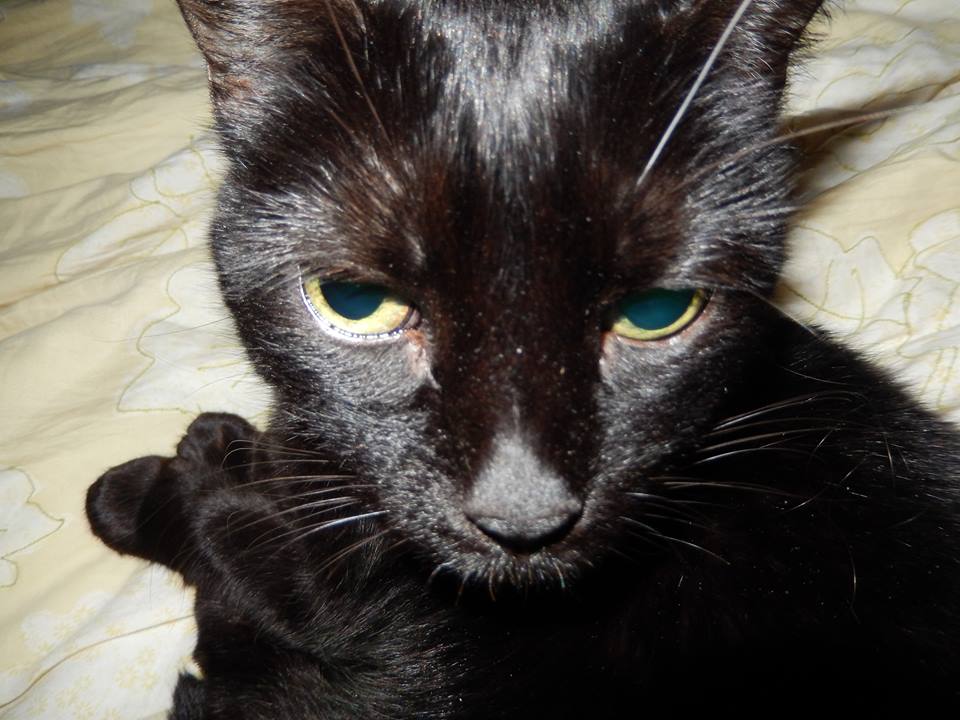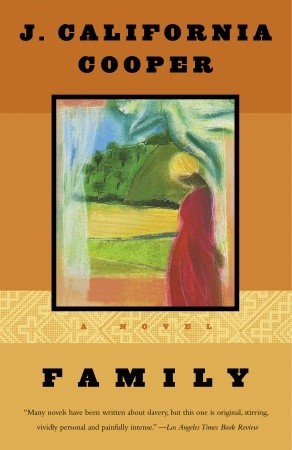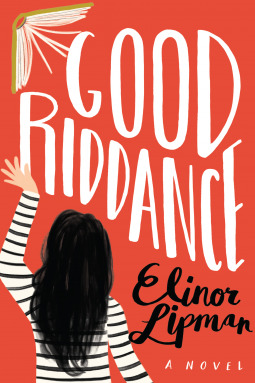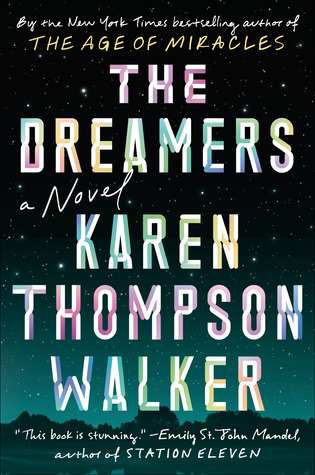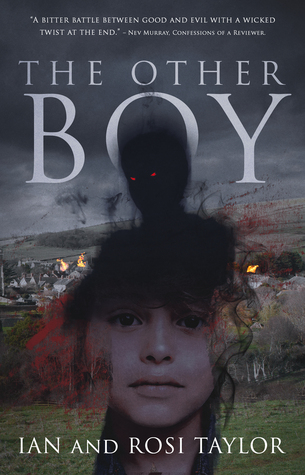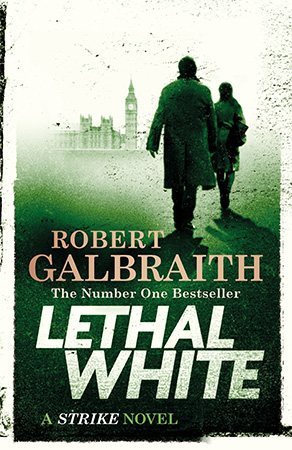I’ve been working on a fantasy collaboration with my friend, Shawn
Michael Vogt, and I would love to share the introduction with you.
It’s set in a fantasy world I created called Akasha, and it
features Shawn’s character Kitsune no Akuma,
a swordsman who dons a living fox mask, and a bounty hunter character
I created who is named Jacquin. The story is called Overkill in
the Chaos Cathedral.
Excerpt:
Jacquin
the Jackal cut through the final bandit’s throat at the bottom of
the steps, then ascended towards the Chaos Cathedral.
Overhead,
blood rain fell in scarlet summer tears, thunder cracked, and
lightning crashed from the fuschia skies as the ancient
constellations sparkled in their fabric. The storm added to the Chaos
Cathedral’s already intimidating structure, strange and mystifying
in sight with its ancient vermilion stone composition and obsidian
spires. The Cathedral’s bell tower sung, as if announcing the
bounty hunter’s arrival. Those stairs leading towards the Chaos
Cathedral were archaic, decked with cracks and broken ends, shaky
under Jacquin’s boots of gold.
As
Jacquin placed his sword into its golden sheath, his brown eyes gazed
from the gaping holes of his gold-plated half-skull mask, the
cathedral proud on that hill. Jacquin the Jackal knew the chaote
warlock, Lucius of Kane, was waiting for him there.
Lucius
would know Jacquin as soon as the men met, Jacquin was sure, for the
bounty hunter’s reputation preceded him just as much as the dark
warlock he’d been hired to hunt. The Jackal was recognizable with
that well-known skull mask that covered his shaved scalp, forehead,
cheeks, and nose, with golden fangs hanging over his upper lip. He
was also known from that blood-red cape that flowed behind his 6’1”
frame, decked in golden armor, and the sharp spikes that lined his
golden gauntlets and boots.
Jacquan
the Jackal was known, and feared, as the greatest bounty hunter on
the entire globe of Akasha. He liked to think that in Heaven and Hell
he would be a frightening force as well.
Behind
Jacquin were the corpses of the bandits he slain, littering the
cathedral’s courtyard of sand and stone. They were great fighters,
but not worthy, well-trained for robbery but lacking in strategic
swordplay. Lucius of Kane, the necromantic mage, was an idiot for
hiring them as sentinels to serve vigil at the cathedral’s gates.
He should have stuck with more undead swordsmen like the skeletal
bastards he sicced on Jacquin ten miles down the road, or the vicious
hellhounds and violent winds he summoned to slow down the bounty
hunter in his trek five nights before.
No
worries. Jacquin didn’t need to think about those failed opponents
now, not anymore. He was done with them. Lucius was all that was
left. If the chaote was smart, he conserved enough of his magic power
for Jacquin’s arrival.
Now
that mighty cathedral waited, with its iron gates open, calling to
Jacquin, the ringing bell in its highest tower mocking him. The
skulls resting atop spikes were the only sentinels to serve vigil
now, with the remainder of rotting meat cursing the air with a putrid
stench. They grinned as skies of violet stretched overhead, clouds
spinning in circular rings above the unholy place.
Jacquin
stepped past the threshold of the ebony, scale-patterned double
doors, which were already open for him.
In
the darkness of that evil place, with its stained windows and empty
hues, Jacquin could make the outline of Lucius at the alter. There
was his man, his target, his coin, the warlock who committed the sin
of dream murder.
Lucius of Kane had entered Coral Deinera’s dream with the aid of
his puissant chaos magic, depleting her essence to oblivion while she
slept—Coral Deinera, the princess of Thorinia.
A
death mage hiding under the protection of roughians, Lucius needed to
die.
Jacquin
was from the Micante islands, black as obsidian, wild as fire within
his very being. He’d been raised in the ways of slaying sinners,
those who felt above the law of the Joint Kingdoms. He answered to
both the Kings of Thorinia and Drakia, on call whenever they needed a
scoundrel to be punished, even to the point of disposal. Jacquin had
no problem with getting his golden gloves bloody.
*
The man in the fox mask cocked his head, listening to the sounds of battle echoing up the stairwell. He looked down at the lifeless body laying at his feet, stabbed hundreds of times. There was no blood, but then, there never was.
His friends were always hungry, and he liked to keep them happy.
He reached down, pulling the last of his soul-daggers from the body, tapping it absently against the fox mask that covered his face. “Well, this is rather awkward,” the man in the fox mask said, seemingly to no one. And yet… “The bounty hunter made better time than I had expected. What to do, what to do?” He paced back and forth, only stopping to kick the body of the death mage.
“I have no wish to kill the fool,” the man in the fox mask continued. “He’s only doing his job. But I’ve slaughtered his target, and he won’t be at all happy about that, nor about the bounty that I’ve robbed him of. Perhaps, it’s best to just leave and let him sort things out.” His mind made up, he turned to leave, pressing the soul-dagger against his chest, the flesh yielding as the blade slid through, disappearing back into his body.
As his fingers began to trace through the air, carving a door out of the aether, his mask writhed into life, baring its teeth. Whispers filled his head, and he slowly dropped his hands, listening intently.
He chuckled, shaking his head in amusement. “I like it, my love. But will it work?” The mask, his audience, mewled and the man nodded. “Fine, we’ll try it. I can always kill him if things don’t work out, I suppose…”
A
growl from the fox mask was the only response its wearer received.
The man stroked his fingers along the mask, and stepped back into the
shadows, patiently waiting for Jacquin’s arrival.
Be
on the lookout for the second book of my Carolina Daemonic
series, Rebel Hell. It should be out this year.
